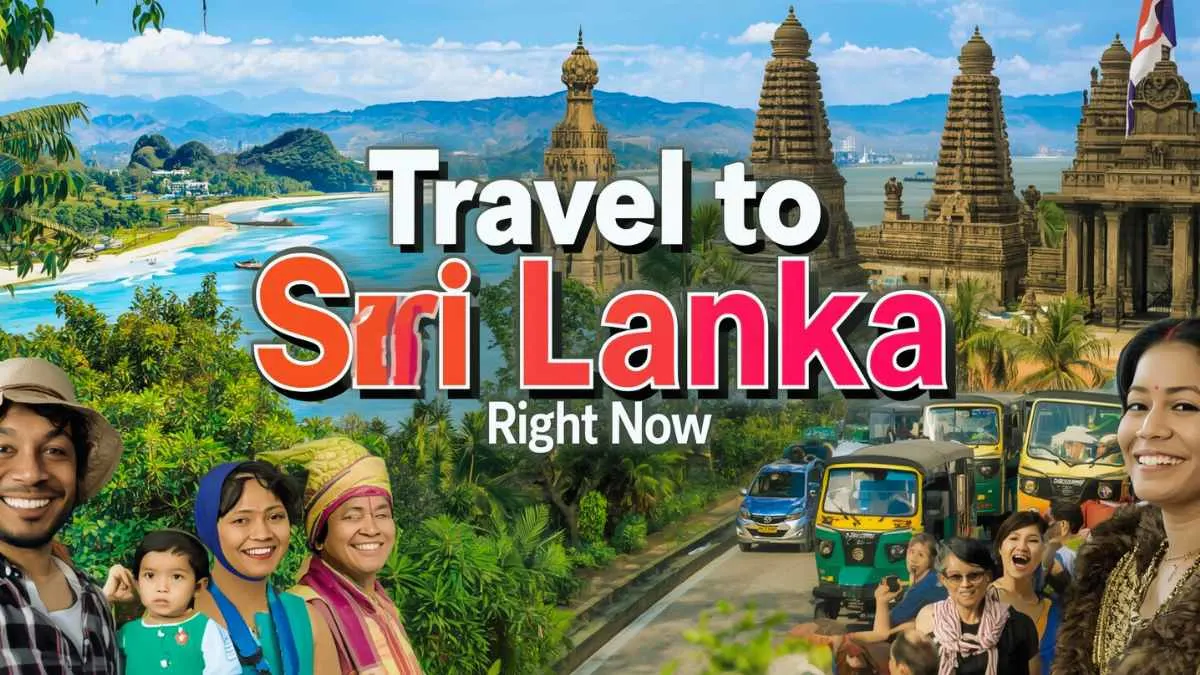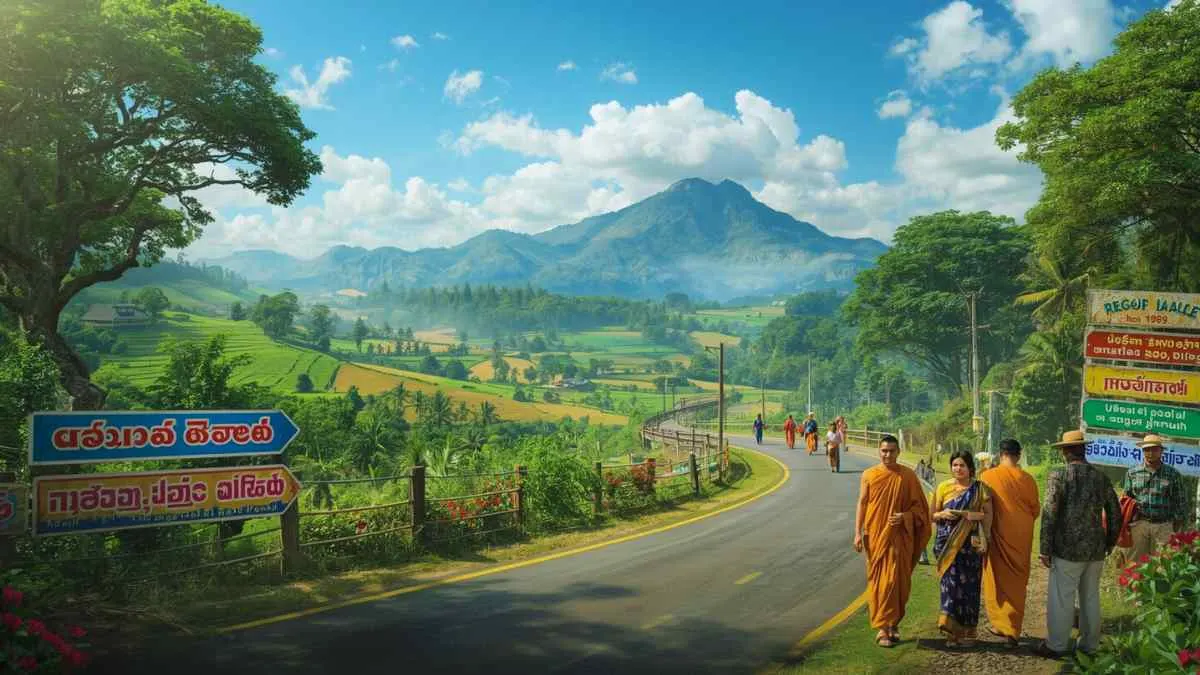Sri Lanka. It’s a beautiful island with rich culture, amazing landscapes and warm people — but like any destination, it comes with certain risks you should understand.
Hey, Is It Safe To Travel To Sri Lanka Right Now?
Find a detailed, up‑to‑date overview of safety in Sri Lanka, so you can decide whether to go and how to keep safe if you do. I’ll cover the major risk areas, the current status, practical safety tips, and frequent traveller questions.

Current Safety & Travel Advisory Summary:
1. Political unrest, demonstrations & civil‑security
Foreign travel‑advisories indicate you should exercise increased caution in Sri Lanka. For example:
-
The U.S. Department of State rates Sri Lanka as a “Level 2: Exercise increased caution” country, citing unrest, terrorism and land‑mine risks. Travel.state.gov+1
-
The Australian Government Department of Foreign Affairs and Trade (via Smartraveller) advises “exercise a high degree of caution” due to demonstrations, security risks and health/medical limitations. Smart Traveller
-
The Foreign, Commonwealth & Development Office of the UK similarly urges caution and notes that “no travel can be guaranteed safe”. GOV.UK
Key concerns include:
-
Demonstrations and protests that can turn unpredictable (even peaceful ones may escalate). lankaweb.com+1
-
Terrorism: past attacks (most notably the 2019 Easter bombings) mean heightened vigilance remains important. Sri Lanka / Sri Lanka+1
-
Land‑mine risk in some northern / eastern zones (former conflict areas) — avoid venturing off‑road or into unmarked areas. lankaweb.com+1
2. Crime, petty theft and scams
Tourists generally are not frequent targets of serious violent crime, but there are risk factors:
-
Pickpocketing, bag‑theft and scams (for example high taxi/tuk‑tuk fares, “helpful” strangers). Travel Safe – Abroad+1
-
Particularly outside major cities, infrastructure (roads, signage, lighting) may be weaker. Travel.gc.ca
3. Health, medical & natural‑disaster risks
-
Medical facilities: In major cities like Colombo you can find good private hospitals, but outside this they may be extremely limited. AVising travellers to have insurance with medical evacuation cover. Smart Traveller+1
-
Health risks: Mosquito borne illnesses (dengue, chikungunya), food/waterborne illnesses, and the need to drink bottled or treated water. Smart Traveller+1
-
Natural hazards: Flooding/landslides occur (particularly during monsoon periods), also road/transport risk is higher in remote/poor‐road areas. Smart Traveller+1
4. Travel infrastructure & remote areas
-
Road conditions and transport safety vary widely. In remote or rural areas, travel is less predictable and may carry increased risk. Travel.gc.ca+1
-
Some travel‑insurance or evacuation support may be limited depending on how remote you go.
So… Is It Safe to Travel Right Now?
yes — but with caution and preparation.
If you stick to the commonly visited tourist friendly areas, follow local advice, keep your wits about you and plan well, you can have a safe and enjoyable trip in Sri Lanka. Many travellers are doing exactly that. For example one safety‐report notes:
“Sri Lanka is a safe country to visit! Your biggest problems here are probably going to be scammers and pickpockets … violent crime is rare though vigilance is recommended.” Travel Safe – Abroad
However, that endorsement comes paired with a clear caveat: you must be aware of ongoing risks. The travel advisories make no guarantees.
Practical Safety Tips for Travellers:
Here are actionable steps to keep your trip as safe and smooth as possible:
1. Before you go
-
Get comprehensive travel insurance that covers medical evacuation, trip cancellation and remote‑area support.
-
Check visa/entry requirements (e.g., Electronic Travel Authorisation (ETA) for Sri Lanka) ahead of time. Smart Traveller+1
-
Research the areas you plan to visit: know which zones have higher risk (remote, former conflict areas, etc).
-
Register with your embassy if offered (e.g., US citizens via STEP) so you can receive alerts. lankaweb.com
2. On the ground
-
Stay updated on local news / hotel‑advice for protests or security alerts. Avoid crowds, demonstrations or large gatherings even if peaceful.
-
Avoid travelling off the beaten track without a credible guide/company if you’re in unfamiliar territory.
-
Watch your belongings in public places; use hotel safes for valuables.
-
Use reputable taxis/rideshares rather than unvetted transport. In some areas, negotiate fares or insist on a meter. Travel Safe – Abroad
-
Respect local laws, customs and dress codes (especially in religious/cultural sites). Smart Traveller
-
For health: Drink bottled or boiled water, use mosquito repellent, get required vaccinations, be cautious with food hygiene.
-
In remote or rural zones: Be aware that medical help may be far away — plan accordingly.
3. Areas and activities to be careful about
-
Northern and eastern former conflict zones: You’ll see improvement, but still some land‑mine risk off major roads. Travel.state.gov+1
-
Remote hillside/forest tracks: If hiking or going off‑trail, use a guide and check conditions (weather/landslides).
-
Beach resorts & nightlife: Many are safe, but usual holiday‑precautions apply (don’t leave drinks unattended, stay aware of your surroundings).
-
Driving/riding: Conditions may be less predictable; roads narrow, signage may be poor and local driving standards differ.
Key Regions: Safer vs. Higher‑Risk Zones:
Generally safer tourist zones:
-
South and west coasts (popular beach resorts)
-
Central hill country (Kandy, Ella)
-
Well‑traveled circuits and guided tours
Zones needing extra caution:
-
The far north and east (former war zones) — while tourism is growing, risk of unexploded ordnance and less infrastructure remains.
-
Areas where protests/large gatherings may occur, or where intelligence alerts have been issued for specific nationalities. Sri Lanka / Sri Lanka+1
Should You Go? Decision Checklist:
Use this quick checklist to decide whether you should travel now:
-
Do you feel comfortable with “exercise increased caution” as the baseline risk level?
-
Have you got robust travel and medical insurance that covers evacuation and remote areas?
-
Are you willing to adjust or cancel plans if local security conditions change?
-
Will you stick to established tourist routes, reputable services and avoid risky off‑trail ventures?
-
Are you comfortable with health preparedness (vaccines, mosquito protection, etc)?
-
Are you flexible with transport, accommodation and contingency plans (power cuts, delays)?
If you answered yes to these, then travelling to Sri Lanka is a reasonable and exciting opportunity. If you feel uneasy or prefer minimal risk, you might wait until conditions improve further or pick a destination with a lower advisory level.
Read Next: Worst Time To Visit Cambodia | Weather, Crowds & Travel Warnings
Advertisements / Sponsored Content Note:
(Note: The following section is for ad‑type content. If you have a travel insurance provider, tour operator or gear supplier to promote, you can incorporate now.)
Sponsored Travel Insurance Offer
Ensure your trip to Sri Lanka is protected with a travel insurance policy covering medical evacuation, trip interruption and remote‑area support. Get a quote today and make sure your adventure is worry‑free.
Tour Operator Highlight
Looking for a trusted local guide in Sri Lanka? Choose a reputable operator with verified reviews, English‑speaking guides, transparent pricing and insurance ready. Your safety and enjoyment is the priority.
Recommended Travel Gear
Pack smart: include a high‑quality mosquito repellent, travel first aid kit, portable charger (power cuts possible in some regions) and a money belt or travel wallet for valuables.
Questions?
Q1: Is Sri Lanka safe for solo female travellers?
Yes — many solo female travellers visit Sri Lanka each year. However, extra caution is advised: avoid isolated areas at night, dress modestly (especially outside beach resorts), use trusted transport and stay in safe‑rated accommodations. BOARD.LK
Q2: Are there specific areas I should avoid?
You don’t necessarily have to avoid a large region completely, but you should be more cautious in remote northern/eastern zones where infrastructure is weaker and land‑mine/unexploded ordnance risk remains. Also avoid large demonstrations and gatherings in cities.
Q3: What about health risks and medical care?
Health risks include mosquito‑borne diseases (dengue, chikungunya), food and water‑borne illnesses, and limitations in medical services outside major cities. It’s wise to:
-
Use bottled water
-
Get proper vaccinations
-
Ensure travel insurance covers medical evacuation
Smart Traveller+1
Q4: Is it safe to use public transport and taxis?
Public transport (especially long‐distance buses/trains in rural areas) may have safety, reliability and comfort issues. Use reputable taxi or rideshare services (where available). Always check fares in advance and don’t rely solely on informal vehicles. Travel.gc.ca+1
Q5: What if there is a protest or unrest during my trip?
If you find yourself near a protest:
-
Move away from crowds as soon as possible
-
Follow local advice & keep updated via news/hotel staff
-
Avoid posting about your location on social media in real time
-
Change plans if needed (most advisories suggest being ready to adjust)
Travel.state.gov+1

